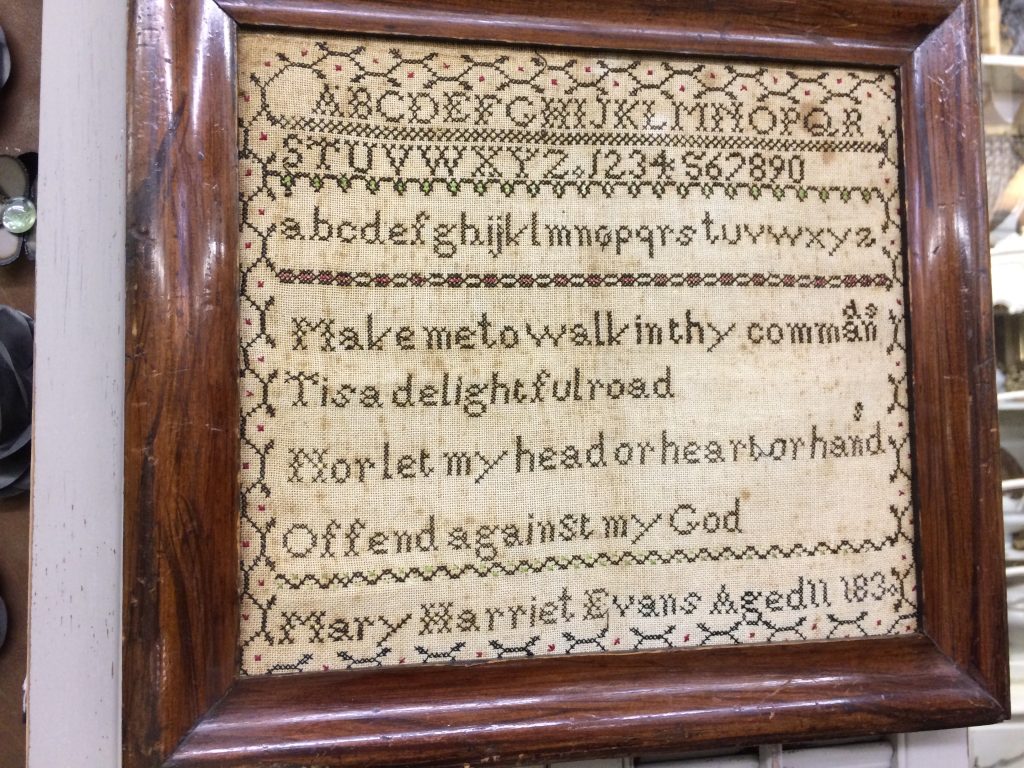
Lately I’ve wished I knew more information about my ancestors: the real things of life: stories, hardships, challenges, relationships, and lessons learned. For my birthday this year, my mom passed a couple pieces of family jewelry to me. One belonged to my great-grandmother who died when my grandpa was 8 or 10 years old, and my mom retold me the things she knew. Sharing the jewelry, and the few details known about her, was a real gift.
When I listened to Genesis earlier this year, I was struck by how these stories are a gift to the Jewish people, and to all who are children of God by faith. For instance: Abraham lied that Sarah was his sister (when she was his half-sister)… and then their son Isaac lied about Rebekah being his sister when she wasn’t any kind of sister at all. Embedded in the stories of those two generations is a message: as humans, without bringing things to the surface for honest healing before the Lord, without a risen Savior making us new and reforming us from the inside out, our messes get messier and messier as generations move along.
While I know some of my ancestral stories for about 100 years back, I don’t know much of anything except names before that. But though I lack those blood-line stories for insight, I can look to the story of humanity and see a bigger message: humans are not where our hopes can rest.
Only abiding in Jesus can form and reform my heart into one that views people, and their stories with eyes of compassion, understanding, and a desire to point them to Jesus and His words (not me and mine) as the provision for their needs. All of us must ultimately look to Jesus. It’s a truth that works both ways– for me, as I relate to others, and for others, as they relate to me:
- He’s the only one that can satisfy me, and
- He’s the only one that can bear the weight of their expectations and needs and satisfy them.
WE LEARN FROM A VARIETY OF SOURCES
The Lord Jesus is not the only teacher I’ve had, of course.
My behaviors, expectations, attitudes, communication style, and modes of decision-making have come from a variety of sources! In addition to the things God has done in my heart and life, there are learned patterns (some adopted long-ago) that are still operative in my life, and they may not resemble being crucified with Christ at all!!
Some of the “learned patterns” in my life have come from:
- people I was near— whose behaviors/way of relating I’ve simply adopted through proximity
- teachings I received — behaviors/patterns I received in a systematic way
- humans I admired— whose choices and thinking became patterns/models for my own
In each of these cases, there was a degree of active learning, and a degree of passive learning (where you simply “pick up” messages, ideas, or ways of relating).
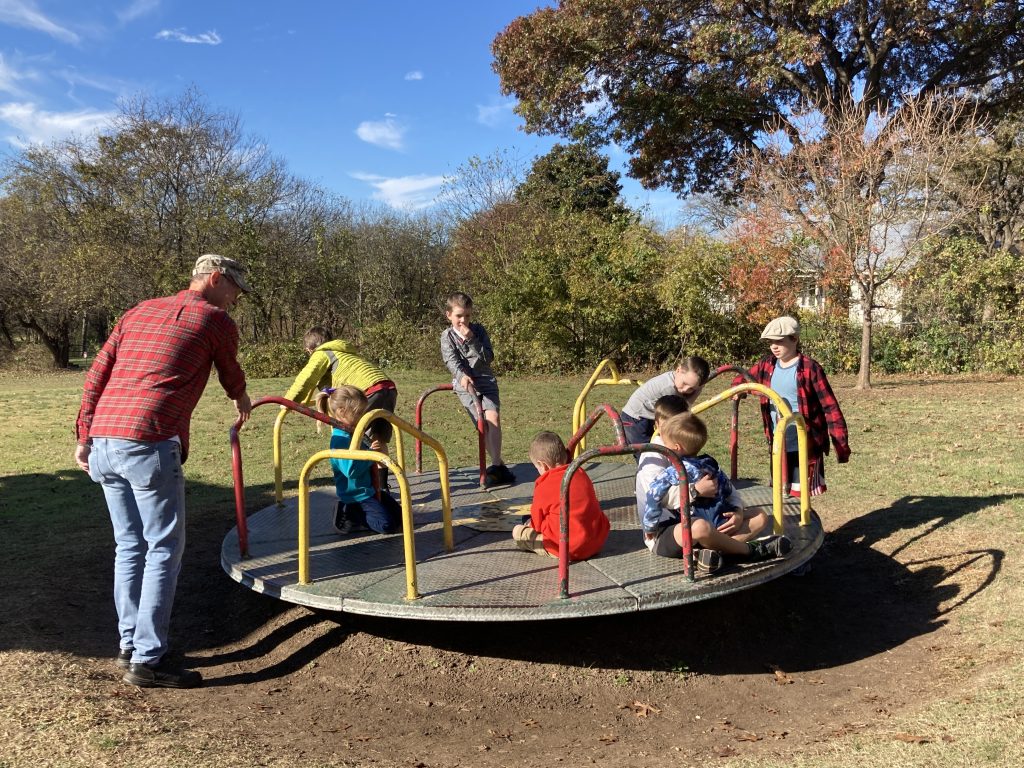
PEOPLE WE ARE NEAR
Of course we are all impacted by our parents, and families of origin. The early years of our lives shape the rest of our lives. And we naturally mimic habits, chores, conversational patterns, and household norms learned from these people we are nearest– and may carry them forward without ever stopping to question if it is a way we mean to live. We all receive input like this, and of course (in a good family setting), much of it is helpful and necessary for life. God has put us in relationship with others, and built a huge season of learning and dependency on others, at the start of every human life.
Another example: as believers, the first church experience we have where we feel “engaged,” can color the way we think things “should” be, and we can fail to look at that church (or those that come after) with eyes that line up with the biblical description of worship, one-anothering, and church leadership. Like with the home/family where we grew, we may not even question the things we see as “normal.”
If an honest, young, Christian businessman started his career by working for Enron, he might not even *realize* the way his view of “normal” business practices, and company culture, were mis-shaped by a company that was rotten at its core. Even after the company blows up in a terrible disaster, he may struggle to discern: which things were rotten? And which things are normal/fine?
PROXIMITY: LIVING CLOSE TO A STINKY FACTORY
I remember summers when we’d drive out to my grandparents’ house in Sarepta, Louisiana, and pass through Springhill on our way. The odor from that town’s paper mills filled our nostrils and there was no escaping it! But we learned that people who live there have noses that adjust; it doesn’t smell badly to them in their day-to-day life.
It can be like that for us when we live in regular contact with people who live and interact in ungodly ways. Sometimes our relational patterns are shaped by the people we are around, and we are so deep “in it,” that we don’t realize how badly it reeks of unhealthy or ungodly behavior.
Like people in that stinky city, if we have lived in a situation for a long time, even if we move away, it may take a long while for us to recognize that it doesn’t smell right. Proximity– especially when we are young or have been in a place for a length of time– impacts our ability to discern what’s healthy & normal.
When we learn from humans, we are always learning from imperfect people.
But sometimes, we learn from people who are incredibly unhealthy– we could call this ungodly, wicked, wounded, unhealed, proud, poisonous, or the modern term “toxic.” Whatever we call it, unfortunately, it is often the case that we intake information, teachings, or patterns of relating, and integrate those into our lives, before we realize that the person/teachings/system is incredibly unhealthy. Like an infection, the ugliest and least healthy things are hidden inside and sometimes it takes a while for the oozing stench to show up on the surface.
TEACHINGS WE RECEIVE
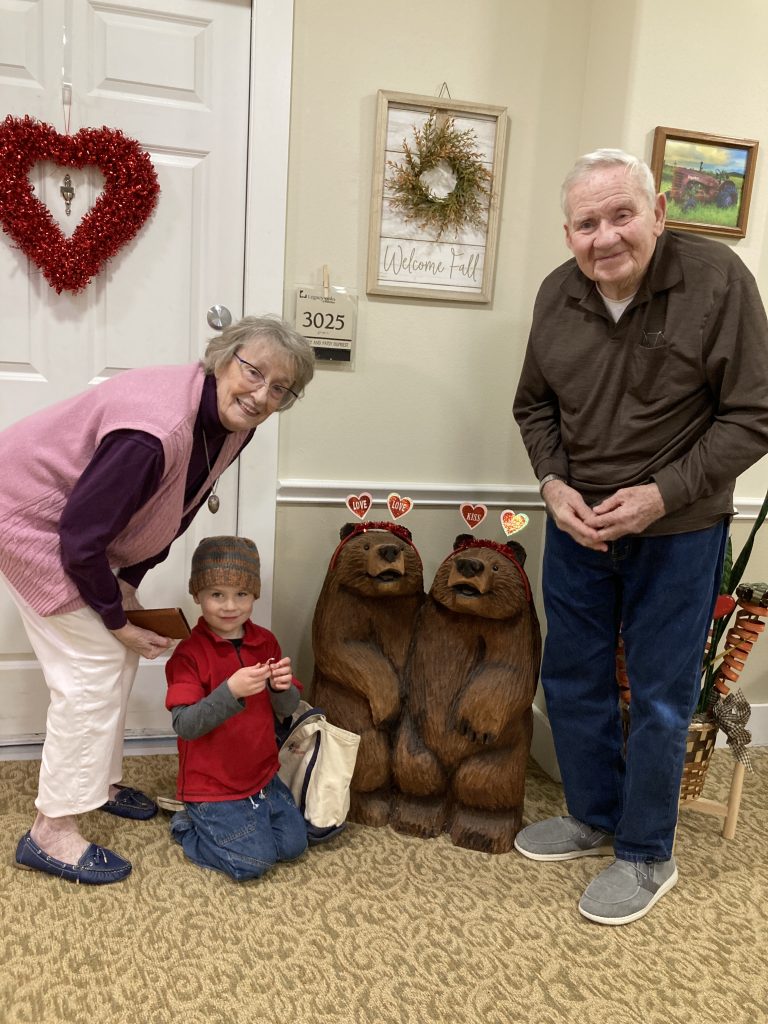
We are impacted by people:
- who have taught us in person,
- whose podcasts we have binged,
- who were older than us, and we looked up to,
- whose books we have read,
- who we have partnered with or been mentored by in ministry settings, or
- who have in some other way shared specific input or ideas that have shaped our lives.
And it’s not wrong to learn from others. When Paul wrote the Thessalonian church, he commended them for “imitating us and the Lord.” (Emphasis added.) Whether in real life, or a book, or some other means– it can be so good to have godly people we are looking to and learning from! They can help us “get the point” of something sooner than we would do on our own. Rather than reinventing the wheel of how we’ll do something (keep a healthy body, study the Bible, communicate in our marriage, or guide our children), we can learn from others about how they’ve done what we hope to do.
But sometimes we have been taught poorly– incompletely, with an agenda, incorrectly, or by people whose lives did not actually line up with the words escaping their lips. Sometimes our teachers, or the materials we consumed, were tilted or “off” in a way that we didn’t discern at the time when we were listening.
I wish I had the link, but I remember R.C. Sproul stating that even the most “right” theologian who has discerned the heart and word of God the best of any human, probably only has a 60-80% of a right understanding of God. (He said one or the other– 60, or 80– and I can’t find the original Q&A to know which.) Even if we are incredibly discerning in who we listen to and read, it’s simply not enough to sit under solid teaching.
And sometimes– this has (sadly) happened many times in my life now— we have been mentored by, lived alongside, listened to sermons/teachings of, someone who makes a massive shipwreck of their life and faith, or someone who is actually a wolf in shepherd’s clothing. I look back over the last two decades and could call to mind dozens of authors, speakers, pastors, and social media influencers, who have (publicly or privately) made a wreck of things. Because they were given platform, wrote some books, or had a following, we viewed them as admirable and intook their teachings, without knowing that we are drinking from a tainted fountain.
When this happens, we are left wondering how to deal with that– how can we untangle the knots of information or ideas we got “way back there” once we’re already all the way “over here?”
What does it look like to disentangle and carefully examine beliefs, when we’re not even sure which ones have influenced us in which ways?
{READ: 13 Life-Preserving Ideas for Recovering from Spiritual Abuse}
EXAMINING MYSELF & MY “LEARNED” NORMS
The way this has played out for me is: after realizing that I’ve been influenced by someone who is ungodly, with unhealthy relational patterns, I’ve had to identify the behaviors that are the most clearly sinful and problematic and ask myself in what ways I may exhibit/mimic those same unhealthy patterns or ungodly attitudes.
- Have I embraced or accepted things I shouldn’t?
- Are there ways of conversing or interacting that I’ve mimicked or allowed to become habitual for me that I can (even in some small way) see are not in the way of Christ?
- Do I see similarities in myself to the sinful attitudes and ways of interacting that this person displayed?
- Are there some teachings (or things they said or did) that never quite set right with me? Now that we have clearer information about this person’s character, are those things I can now mentally clear up?
- If they minimized certain sins, am I seeing those things as less significant than they are?
- If they over-emphasized certain things, am I seeing those things differently from how the Bible discusses them?
And sometimes– especially the more closely we’ve been impacted by someone– it’s seeped in so deeply that I don’t even know the right questions to ask, or how to identify how that person has impacted me.
It’s hard.
Not only that, but seeing someone’s ministry fall apart, or learning things that cause you to no longer regard someone as godly, but as spiritually sick or even corrupt and ungodly can bring up varying emotions in us. We can feel pulled to focus on that person, or act like they’re the only one with a problem. BUT– if we have been in close proximity and under that person’s influence for any length of time, we should not just look at them and their problems.
We must humble ourselves to consider — in what ways have I been shaped by the same thought, speech, relational, and behavioral patterns? What have I thoughtlessly (or even purposefully) embraced and integrated into my life? Since I have been in a position of rubbing up against that person, how are those undesirable qualities showing up in my own life?
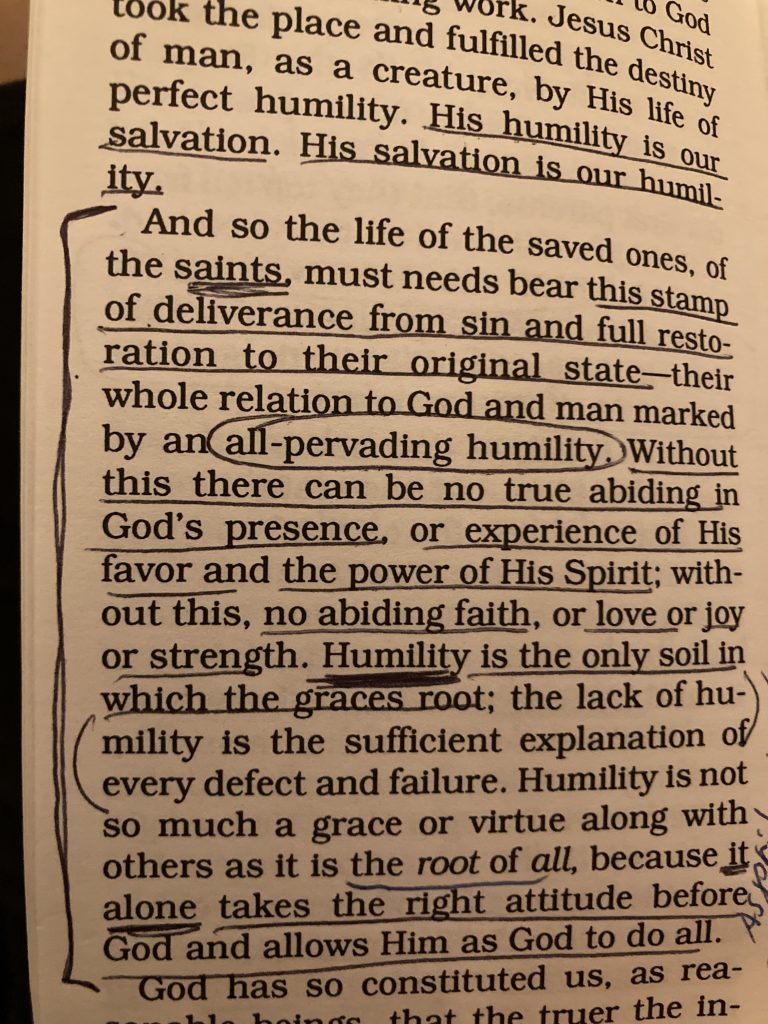
PEOPLE WE ADMIRE
In my life, I’ve seen the pitfalls of looking too closely to mentors as my template. Yes, there is good that can come from seeing a flesh-and-blood example who is living out some things that we aspire to. (I’ve written a lot about Titus 2 for this reason!)
And there can be important things we learn from the effects of sin and brokenness. It’s heartbreaking when that happens in the life of someone we love.
But no matter who you look to, there are ways God is going to lead you, limit you, grow you, prune you, and shape you, that are different from that person’s life.
Even someone who is admirable can not provide an absolute “template” for my life. About 15 years ago, I remember encountering Sally Clarkson’s works and feeing such a kinship with her zeal and vision! “Finally,” I thought! “Someone who delights in King Jesus, the Gospel being spread to all the peoples on earth, mothering with intention, investing in other women, and homeschooling with passion, joy, and curiosity!” Much that she has taught and written has inspired and spurred me on in life and mothering!
But as our family took shape, I realized that her energy, vision, and capacity within motherhood was uniquely shaped by the timing and number of her children’s arrivals, and that our significantly-larger family would look different simply by default. I admired many things she did but yet wasn’t able to live them out, and I realized that if I saw her life as the standard for excellence in motherhood, I’d be perpetually discouraged and feel like a giant failure.
Even the best human example can not supplant our need to abide in Christ. Ultimately we must draw our example, teachings, hope, and aspirations from Jesus. And this is the point I’m coming to.
As we identify, examine, and “put off” ungodly patterns, WE MUST PUT ON CHRIST!
As I ponder the sources of influence in my life, and the active and passive ways I’ve adopted certain behaviors, attitudes, and modes of thinking, increasingly I come back to this at the center of what matters:
- In Jesus, my sins are paid for, and I am valued, and provided for– both now and with an eternal, irrevokable inheritance.
- God the Father is continually at work in me, and will do what needs doing to make me more like Jesus.
- The Spirit of God is alive in me, guiding and producing fruit– He will bring me to full maturity.
- Through His Word, God has given me all I need for life and godliness.
While I want to be mindful of the attitudes and patterns I inherited or took in, by any method (intentional or by proximity), and while I do try to hold our, examine, and disentangle myself from unbiblical beliefs or lifestyle patterns influenced by ungodly people along the way,
the primary thing I want to do at this stage of my life is intake God’s Word, abide in Christ, and learn to walk by the Spirit.
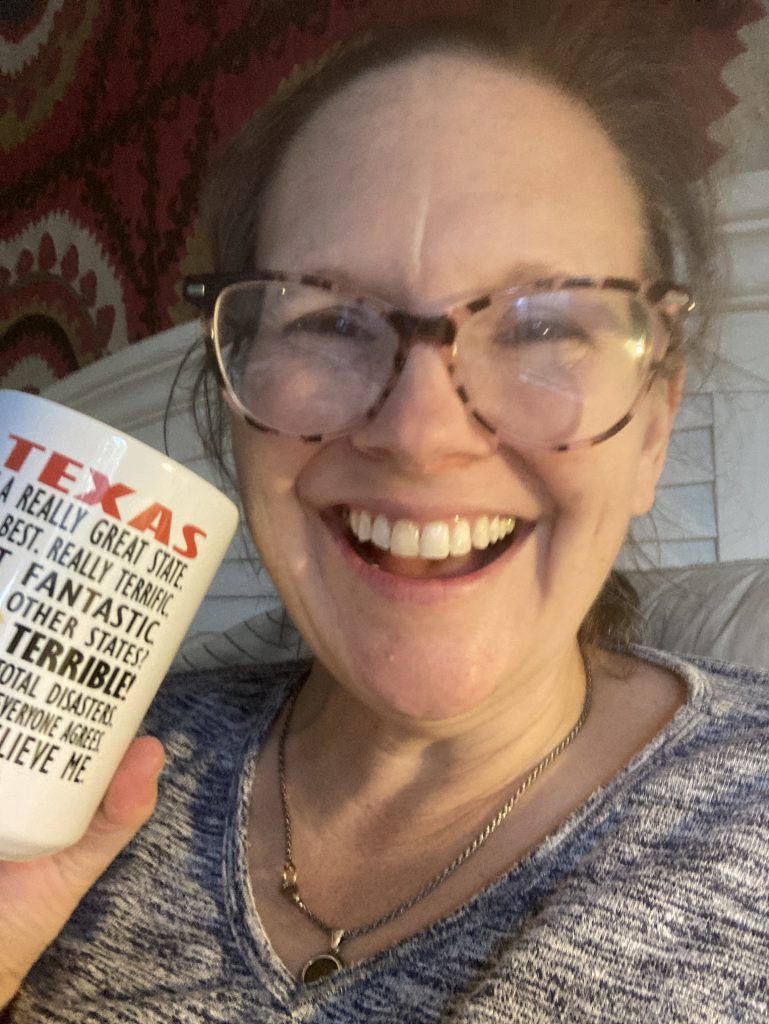
God is the one who ordained the course of my life and allowed me to encounter the good, bad, and ugly influences I’ve had in my life to this point.
He is able to lay, strengthen, cut out, reshape, and BE the foundations of my thinking. He is able to make light shine in the darkness of confusion, hurt, or broken relationships. He is able to prune ungodly things from my thinking and life. He is able to water and shape the growth of my life in the way He desires. He will help me to see human guides as human, and be discerning as I intake messages from those sources.
In one sense, if we are His disciples, we have already “put on Christ” (Galatians 3:27). But in another sense, it is an active posture– we must “put on the Lord Jesus Christ and make no provision for the flesh.” (Romans 13:14) We must walk by the Spirit and abide in the Lord!
More than any other desire in my life right now, as I seek to edit out destructive messages I’ve previously encountered, I want to abide in Jesus Christ, hide myself in Him, and let His Word be the rudder for my life.
May He keep us from poisonous people and sources, and guard and guide us in all grace and truth!
Grace and Peace,
Jess
QUESTIONS:
How are you learning to identify and disentangle yourself from unhealthy, unhelpful, or unbiblical input you received?
Have you come across helpful authors/books/ideas as you seek to move away from ungodly mentors/ideas?
Have you found it difficult to retain the “main things” while editing out the not-good things?
Something I’ve seen in my own experience is people calling others “toxic” and ending the relationship before actually dealing with the conflict or seeking reconciliation. I’ve also learned that there are ways I’ve been manipulative, but I didn’t see it for what it was without the Lord showing me. I think we’re all guilty of being toxic or too trusting and we all need much more grace with each other. We need the Lord’s wisdom to know when we should “let it go” or go speak the truth in love to the one who has sinned against us or others.
Books by Dr. Henry Cloud have been very helpful to our family (Changes that Heal and Trust).
I also read a book early this year called Building the Bonds of Attachment by Dan Hughes. It was a hard read, but it really helped me understand more why toxic people are toxic – it’s often related to how their parents treated them as babies/children. This boo is specifically about parenting children that have trauma, but the prinicples can be applied in other relationships, too.
Katie
Good points. None of this is meant to advocate for ditching and running out of relationships.
Thanks for sharing, too, about the attachment angle. It’s true– people with unhealthy patterns of relating almost always learned those patterns from parental/familial experiences. Very rarely does it actually have much to do with the person in front of them. It’s helpful to know that and detach from feeling like it’s super-personal, or can somehow be fixed with a little bit of communication. When the patterns are long-standing, there’s very little (I’m tempted to say virtually nothing) one person can do to alter those unhealthy relational patterns.